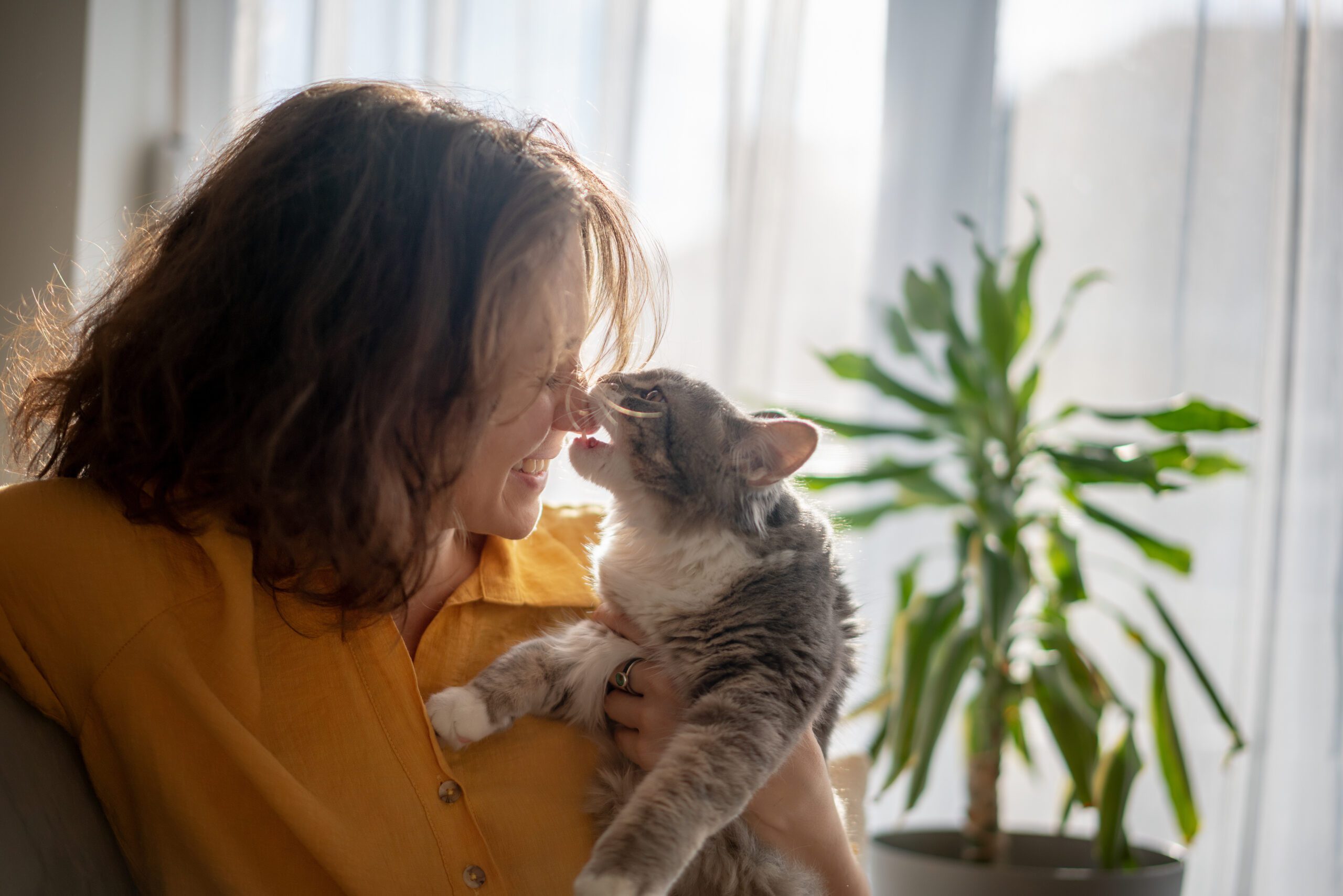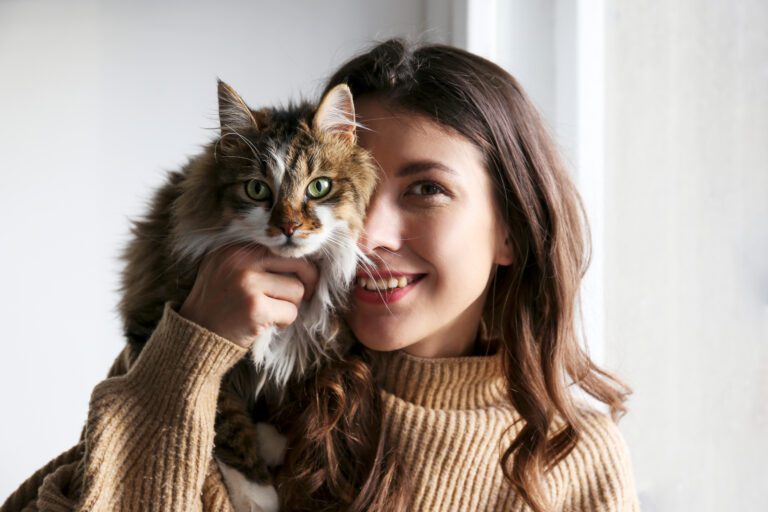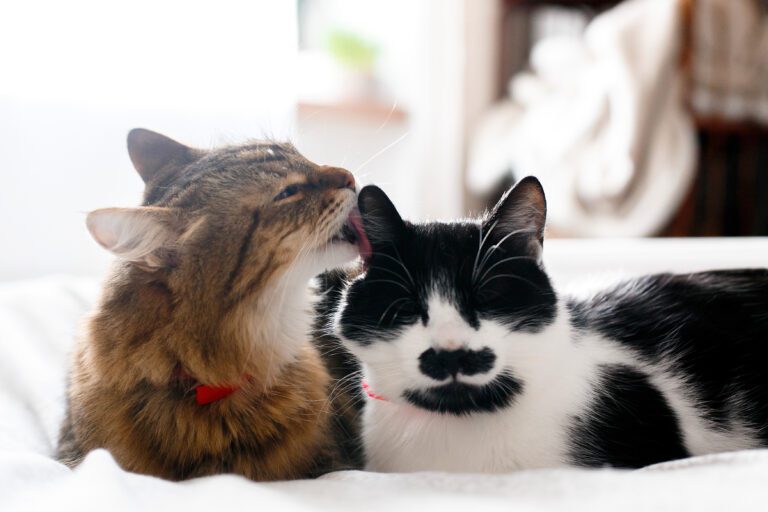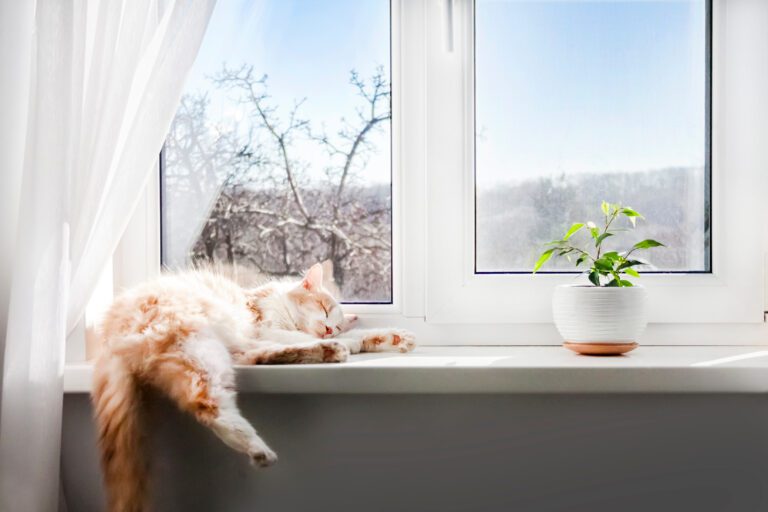There could be a few reasons why your cat tries to bite you when you pet them. Cats have unique personalities and preferences, so it’s essential to consider their individual traits. Here are a few possible explanations:
- Overstimulation: Some cats have a lower threshold for being touched or petted before they become overstimulated. They may enjoy being petted initially but become overwhelmed after a certain point. This will sometimes lead them to bite as a way to communicate their discomfort.
- Medical issues: If your cat’s behavior suddenly changes and she starts biting when you pet her, it’s worth considering that she might be experiencing pain or discomfort. Cats often resort to biting as a defensive response when they’re in pain. If you notice any other unusual behaviors or signs of illness, it’s best to consult a veterinarian.
- Play aggression: Cats have natural predatory instincts, and during play, they may sometimes bite or scratch as a part of their hunting behavior. If your cat hasn’t been adequately socialized or trained to distinguish between play and real aggression, she may resort to biting during interactive play sessions.
- Communication or boundaries: Cat biting can also be a way for cats to communicate their boundaries. If you’re petting your cat in a sensitive or painful area, she may bite to indicate that she’s had enough. Cats have specific areas that they may not like being touched, such as their stomach or tail.
- Negative past experiences: If your cat has had negative experiences or trauma associated with petting, she may associate the action with fear. This can cause her to respond defensively by biting.
To address the issue, consider the following…
- Pay attention to your cat’s body language and cues. Look for signs of tension, restlessness, or tail twitching, which may indicate that she’s becoming overstimulated.
- Gradually learn your cat’s preferences by observing how long she enjoys being petted before she becomes uncomfortable. Stop petting before reaching that threshold to prevent triggering a biting response.
- Provide alternative outlets for play and predatory behavior, such as interactive toys or puzzle feeders. This can be effective in redirecting their energy and prevent play aggression during petting sessions.
- If your cat’s behavior doesn’t improve or worsens, consult with a veterinarian or a professional animal behaviorist for further guidance and advice tailored to your specific situation.
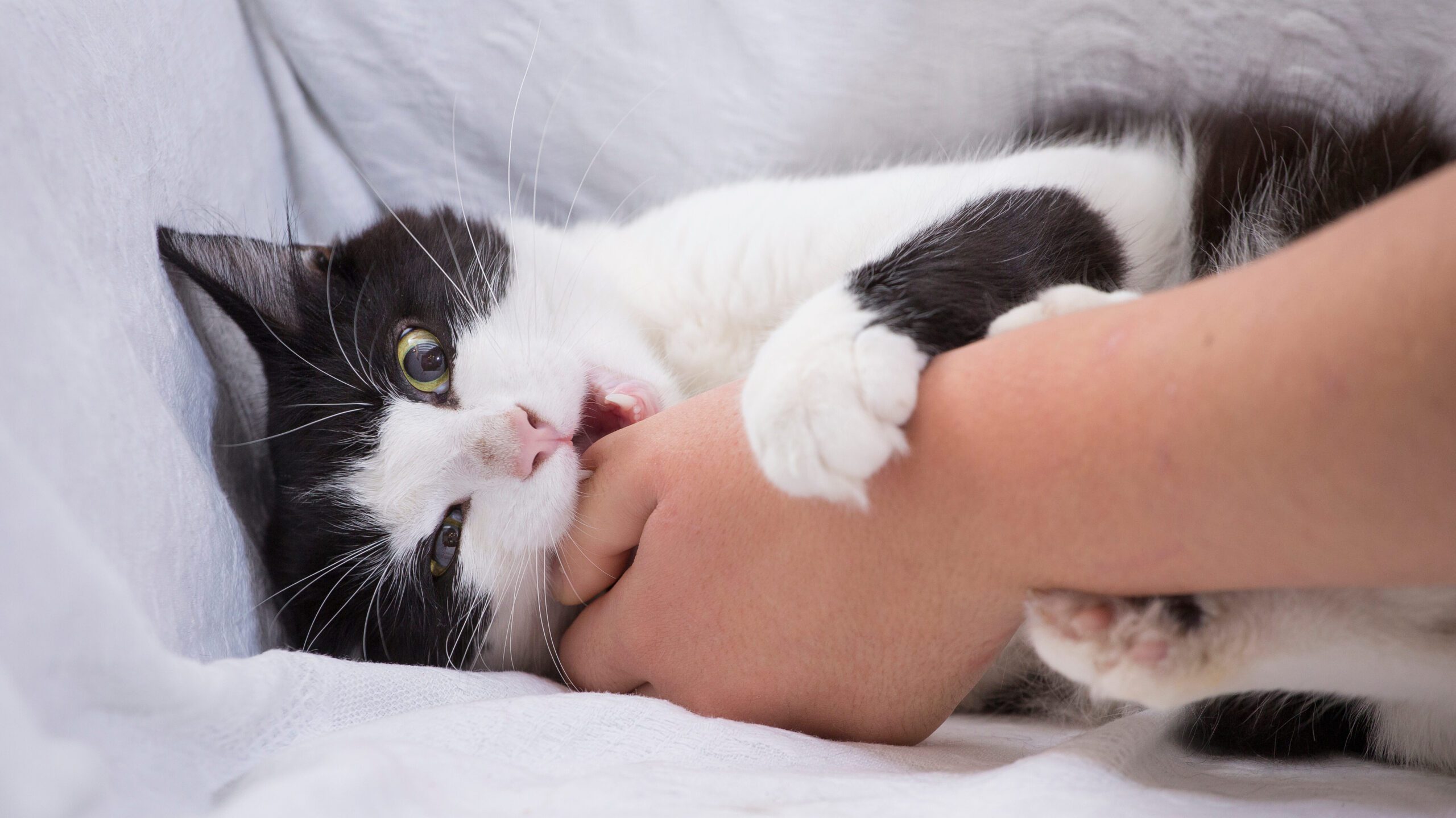
Is your cat staring at you a lot too? Read our blog here to understand why!


